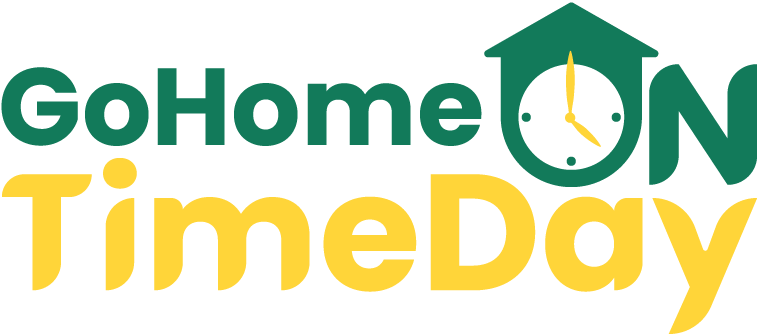Entering the interview for your ideal job holds significant importance. If you turn up late, it could imply poor time management skills, whereas, arriving overly early could potentially interfere with the day’s regular operations. Consequently, it’s crucial to meticulously plan your arrival when you’re seeking your dream job.
With years of guiding job seekers, it’s important to know how early should you arrive to an interview.
Envision being poised and ready moments before your interview, not by accident, because you’ve pinpointed the ideal arrival time that conveys punctuality without imposition.
We will explore the optimal number of minutes to arrive early, ensuring you make a solid first impression every time. So, let’s begin.
Key Takeaways
- Strive to be 15 minutes early to show eagerness and respect.
- Arriving early on request can test your adaptability.
- Excessively early arrival may inconvenience your interviewer—use any additional time outside the venue.
- Know your route transportation schedules, and have a plan B for delays.
Understanding the Importance of Knowing How Early Should You Arrive To An Interview

Punctuality is vital when it comes to job interviews. Arriving 15 minutes early allows you to showcase your reliability and dedication. It’s essential to understand the interview time and plan accordingly, arriving at your interview location with enough time to spare.
Being early for a job interview offers you a chance to mentally prepare and even answer some common interview questions in your head before the actual interview starts.
Arriving early for your interview helps you make a good impression in an interview and demonstrates your commitment to the opportunity. Plan to arrive well in advance, ensuring you arrive at the interview location before your interview time.
However, showing up too early, say 30 minutes early, might only sometimes be ideal as it can lead to waiting for an interview for an extended period, potentially affecting your interview preparation.
In essence, striking a balance between being early for a job interview and not too early is crucial. Aim to arrive 15 minutes early to allow for any unforeseen delays and to give yourself enough time to arrive at the scheduled interview time without being too early for an interview.
Remember, showing up early isn’t just about getting there ahead of time; it’s about being prepared for the interview and making the best use of the extra time before your interview starts. So, ensure you arrive earlier than expected but not excessively so.
View a related video on punctuality here.
The Psychological Impact of Punctuality on Interview Success
Being timely does more than make a good impression; it brings peace of mind and focus to address the interviewer’s questions confidently. It’s akin to a warm-up before a sports match, prepping your mind to perform optimally.
This promising beginning often sets the pace for the rest of the interview. When you show up for an interview, arriving 15 minutes before the scheduled time is a strategic move. Arriving early for a job interview allows you to collect your thoughts, review your notes, and mentally prepare for the interview.
On the day of the interview, as the clock ticks closer to the scheduled time, it’s crucial to arrive too early rather than risk being late. If the hiring manager asks you to arrive early, it emphasizes the importance of punctuality in their eyes.
Find additional insights on punctuality here.
How Timeliness Can Influence an Interviewer’s First Impression
Arriving early to an interview on schedule showcases respect and seriousness, laying down a favorable foundation. Appropriate timing aids in synchronizing your interview within the interviewer’s daily structure, subtly nodding to your understanding of professionalism. Being early, minutes before the interview ensures you arrive prepared mentally and emotionally for a job interview. This early arrival is more than just a gesture; it’s a strategic move that can significantly impact the interview outcome.
Understanding what time to arrive is crucial. An interview 15 minutes before the scheduled time is often recommended. It not only shows diligence but also allows for any unexpected delays. Being minutes early for your interview gives you extra time to prepare for the interview and collect your thoughts.
Learn more about crafting a first impression.
Recognizing the Ideal Timeframe to Arrive for an Interview

Being 15 minutes early is the sweet spot, showing enthusiasm while respecting the interviewer’s timetable. It would be best if you arrived to demonstrate your punctuality.
Minutes before your interview, consider taking additional time outside the venue for last-minute preparation. This proactive approach showcases your dedication and readiness, ensuring you interview early and are fully prepared when you walk into the interview.
Arriving at the location of the interview minutes early for a job signifies your commitment. It’s essential to come ahead of schedule to start the interview promptly. Planning to arrive early on the day of your interview allows for unforeseen delays in your trip to the interview or finding the location of your job interview.
Seeking a game-changer for your schedule? Explore our in-depth blog post on the Time Mapping Template – your ultimate guide to superior time management strategies.
Why 15 Minutes Early Is Generally Suggested
It balances showing initiative and ability to account for unforeseen hindrances, allowing a moment to collect yourself and make any final reviews.
Decoding the Subtext When Asked to Arrive Early
An earlier request may assess adaptability. Use it to observe the workplace dynamics, displaying rapid adjustment capabilities.
The Complications of Excessive Earliness
Arriving at most 15 minutes early can backfire, potentially causing a logistical hiccup for the interviewer. Be considerate and time your entry, keeping to professional norms.
Preparing to Ensure Timely Arrival at The Interview Location

Setting the stage for a successful interview means being punctual.
Here are steps to safeguard against tardiness:
- Research the location using map apps to find the best route and anticipate traffic disruptions.
- Plan a departure from home with a 30-minute buffer for unexpected delays.
- A trial run on a similar day/time estimates a realistic time.
- Know your parking or public transit options well in advance.
- Set dual alarms—one to start your day and another signaling when to leave.
- Monitor real-time traffic updates to stay informed of potential slowdowns.
- Assemble necessary items ahead of time: outfit, documents, and sustenance.
- Engage in quiet activities to use any spare time if early while avoiding the reception area until the appropriate time draws near.
- Confirm the interview schedule a day beforehand as a precaution.
The Significance of Location Familiarity Before Interview Day
Knowing the venue alleviates stress, contributes to confidence, and exemplifies diligent preparation, championing a composed arrival.
Transportation’s Role in Maintaining Punctuality
Insightful travel planning, including allowances for contingencies, is crucial for a stress-free journey to the interview.
Formulating Contingency Plans for Unexpected Delays
Like a comfortable time buffer, a sound fallback strategy ensures resilience against unforeseen incidents without panicking.
Crafting a Final Preparation Routine Before Entering The Interview Room

A last-moment review solidifies talking points, calms nerves, and ensures you’re impeccably presentable and organized as you confidently approach the interview.
- Review talking points to solidify your pitch.
- Practice mindfulness exercises to temper anxiety.
- Conduct a final appearance and documentation check, silencing mobile devices.
- Keep a composed demeanor, focusing on success.
What is the Ideal Arrival Time for an Interview to Make a Good Impression?
Arriving 10-15 minutes early for an interview is the ideal arrival time to make a good impression. Punctuality shows respect for the employer’s time and allows you to calmly prepare. This will set a positive tone for your interview success questions for employers.
How Can Workplace Favoritism Impact Interview Arrivals?
Workplace favoritism signs impacts interview arrivals in several ways. When employees perceive bias in promotions or opportunities, it can lead to decreased morale and motivation. This can result in lackluster performance and a disengaged attitude, ultimately affecting the overall impression of interview candidates.
Dealing With Unpredicted Scenarios: Early or Late Arrivals
Whether confronting excessive earliness or unforeseen tardiness, addressing these situations with composure and professionalism is vital:
- Utilize extra time resourcefully when exceedingly early, avoiding premature entry.
- Notify the company promptly amidst lateness, ensuring a safe and steady approach.
- Apologize succinctly yet earnestly—sidestep excuses and redirect focus to the interview ahead.
Tactics for Times When Early Arrival Is Considerable
In the case of an excessive early arrival, locate a tranquil area to refine your readiness, observing workplace culture from afar until it’s time.
Guiding Tips for Late Arrival Circumstances
If delayed, immediate communication reflects respect. Upon arrival, a sincere apology sets the stage for a recovery in the interview’s progression.
Mastering the Apology Without Sounding Defensive
A straightforward apology for lateness, devoid of elaborate justifications, upholds integrity and redirects attention to the purpose of the visit—the interview.
Conclusion
Arriving at an interview at the right time is a delicate but essential part of making a solid first impression. It demonstrates your eagerness, respect for the process, and readiness for unforeseen circumstances.
The consensus among career professionals points to 15 minutes early as the sweet spot, accommodating enough of a buffer for last-minute preparations without imposing on the interviewer’s schedule.
Remember, the interview begins when you arrive, not just when you start answering questions. Being punctual, prepared, and poised positions you as a standout candidate who values opportunities and adapts seamlessly to a professional environment.
Adopt these strategies and insights to further your career journey, ensuring your punctuality is as impressive as your credentials. Good luck!
Frequently Asked Questions
How soon should I arrive for my job interview?
Aim for about 15 minutes early to secure an adequate buffer.
Can being too early for an interview be detrimental?
Too much eagerness can inconvenience the interviewer, so moderation is key.
What if I’m running late for an interview?
Tardiness could be better as it can negatively impact your chances, so strive for punctuality.
Why is interview prep advantageous when it comes to timing?
It equips you with insights on optimal arrival times and refines your response strategies.
Should I leave for the interview earlier than scheduled?
Allocate ample travel time to absorb delays, ensuring you’re on time.
Can preparation influence arriving on time for the interview?
Thorough planning mitigates delay risks, contributing to a timely arrival.

